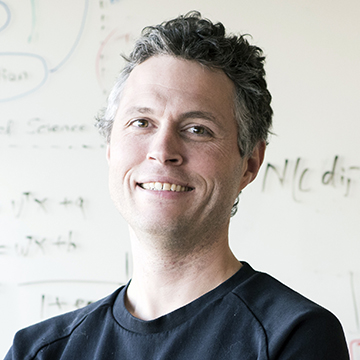
- This event has passed.
ESE Fall Colloquium Seminar – ” Beyond Curve-Fitting: What’s next for deep learning in biomedical imaging?”
November 11, 2021 at 11:00 AM - 12:00 PM
Over the last 5-10 years, deep learning has transformed biomedical imaging, from enhancing acquisition to maximizing downstream utility of scans. My research group has been at the forefront of this revolution, developing novel methods that have laid the foundation for next-generation tools. As I will describe in my talk, much of this progress relies on predictive models and thus can be viewed as “curve-fitting” with general-purpose models. I will then show a few examples of recent work from my group, where we move beyond the curve-fitting paradigm and custom build models in ways that allow us to gain novel insights, understand how the output was computed, or empower the end-user to choose the solution best suited for their needs. These examples will be from a range of applications, including MRI reconstruction, image registration, and neural encoding with fMRI data.

Mert R. Sabuncu
Associate Professor in Electrical and Computer Engineering at Cornell University & Cornell Tech
Mert R. Sabuncu received a PhD degree in Electrical Engineering from Princeton University, where his dissertation focused on entropy-based approaches to image registration. Mert then moved to the Massachusetts Institute of Technology for a post-doc at the Computer Science and Artificial Intelligence Lab, where he worked on a range of biomedical image analysis problems, including the segmentation of brain MRI scans. After his post-doc at MIT, Mert spent a few years at the A.A Martinos Center for Biomedical Imaging (Massachusetts General Hospital and Harvard Medical School) as a junior faculty member, where he built a research program on algorithmic tools for integrating genetics and medical imaging. Today, Mert is an Associate Professor in Electrical and Computer Engineering at Cornell University and Cornell Tech. He also holds a secondary appointment in Radiology at Weill Cornell Medicine. His research group develops machine learning based computational tools for biomedical imaging applications. He is a recipient of an NSF CAREER Award (2018) and an NIH Early Career Development Award (2011).
